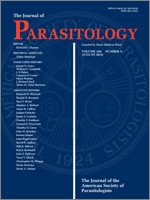Several genes have recently been shown to affect the innate resistance of laboratory strains of Biomphalaria glabrata to infection with Schistosoma mansoni, including Hsp90, the expression of which following a brief exposure to elevated temperature can interfere with resistance in juvenile BS-90 snails. Because a prior study failed to see a similar effect in adult snails, juvenile BS-90 snails were exposed to 10 or 50 miracidia following a 4.5 to 6 hr incubation at 33 or 37 C. Snails were then monitored for production of secondary sporocysts or release of cercariae. In addition, snails exposed to 33 C were examined histologically between 1 and 15 days post exposure (DPE) to 30 miracidia to assess the fate of primary sporocysts. Other than elevated numbers of viable primary sporocysts in the tissues of heat shocked snails at 3 DPE, no statistically significant effect of elevated temperature was observed. This discrepancy with regard to prior studies is hypothesized to result from genetic divergence in different laboratory colonies of the same strain of snail.
How to translate text using browser tools
1 August 2018
Reversal of Schistosome Resistance In Biomphalaria glabrata By Heat Shock May Be Dependent On Snail Genotype
John T. Sullivan
ACCESS THE FULL ARTICLE

Journal of Parasitology
Vol. 104 • No. 4
August 2018
Vol. 104 • No. 4
August 2018




